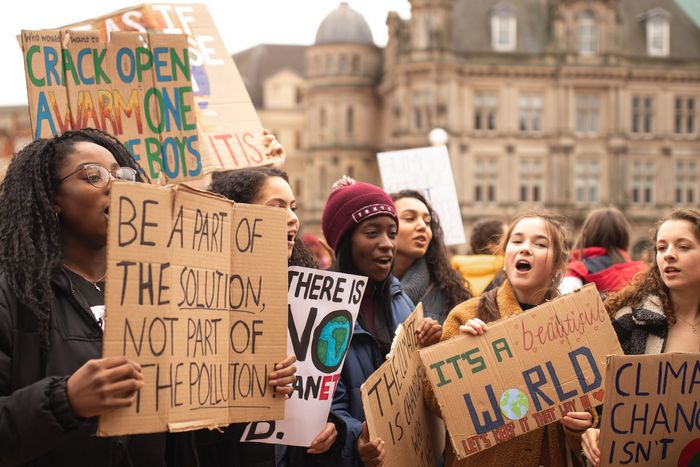Global participation at the climate summit - a question of vaccine justice
The pandemic has stalled international ambitions to solve the climate crisis. After the annual UN Climate Change Conference (Conference of Parties, COP) in 2020 was cancelled due to the corona virus, it is supposed to take place this year in Glasgow with increased safety measures. One of those measures discussed is compulsory vaccination. If COVID-19 vaccination becomes mandatory for participating in the UN Climate Conference, the Global South will lose a voice without sufficient access to vaccines.
Activists as second-class delegates?
In order to ensure physical attendance at COP26 great emphasis will be put on testing and vaccination. At the same time, hundreds of thousands of people worldwide are still waiting for their vaccine - especially in poor countries. A fatal signal, says Perk Pomeyie, climate activist and environmental activist affiliated with the Ghana Youth Environmental Movement (GYEM): ’’Participation from the Global South is fundamental to secure climate justice. We are disproportionately impacted by the COVID-19 pandemic, climate change and debt distress. Our voice is needed now more than ever to advocate for many pressing issues - finance for mitigation, adaption as well as losses and damages.“ As many others, Pomeyie has collected money from friends and family to visit his first COP. Now he is worried that he will not be able to attend. ‘’An obligatory COVID-19 vaccination would pose a particular hurdle for especially young activists from the Global South being already underrepresented at the COP.“
No priority for delegates
Alok Sharma, president of this year's climate conference, wants to enable broad participation in the climate summit and is even talking about the "most inclusive COP ever." To achieve this, giving delegates priority on national immunisation lists is being discussed. Tasneem Essop, Chair of Climate Action Network International (CAN), does not consider the idea as an option at all: ‘’Prioritising delegates to the detriment of the domestic population must not be the goal if it puts vulnerable groups at a disadvantage in terms of access to vaccines. The point is not to jump the queue but to give priority to those for whom the vaccine is vital.” Instead, Essop hopes that the COP presidency will foster global vaccine equity: ‘’The real solution will be to ensure that vaccine production can be ramped up in all countries in the next few months. The UK Presidency should advocate for removing patents and sharing technology and resources. Then, ideally, we will have a safe and inclusive COP where all participants are vaccinated and tested regularly.“
The problem with the virtual conference
While there is broad agreement that cancelling the COP again would amount to a climate policy disaster, opinions about a virtual COP26 are mixed. Although a virtual COP is safer and runs less risk of last-minute changes, it cannot replace a physical COP, says Sabine Minninger, Policy Advisor on Climate Change at Bread for the World. "Delegates traditionally agree on divisive matters in the corridors, important decisions are reached between the sessions. This face-to-face exchange does not take place in online meetings," says Minninger.
A hybrid version between a physical conference and a virtual summit, which has already been discussed, also raises the question of equal participation: ‘’Digital inequity is a barrier to inclusion. A conference where vaccinated delegations from the rich world can show up in person while the poorest countries most affected by climate change try to connect via video conference cannot lead to a just transition” says Essop.
Vaccination justice – time to act now
Due to the special pandemic situation, it can already be assumed that there will be a scaled-down COP. The United Kingdom is already struggling with the Delta variant of the coronavirus. Most likely, national health authorities will not want to take the risk in November that more variants will emerge as a result of a major event with 30,000 people expected to attend. Minninger can imagine a smaller COP this year, provided that the number of all participating delegations is reduced – for instance the party delegations, business groups or media: "If the cake gets smaller, it should at least be shared equally. The pandemic must not be used as an excuse to keep inconvenient NGOs and activists demanding climate justice away from the negotiating table". What the entry requirements to Glasgow for the COP will ultimately look like will be decided in the short term. But to ensure equitable participation for all, the time to act is NOW - by increasing vaccination capacity and distributing the world's limited vaccines fairly.



